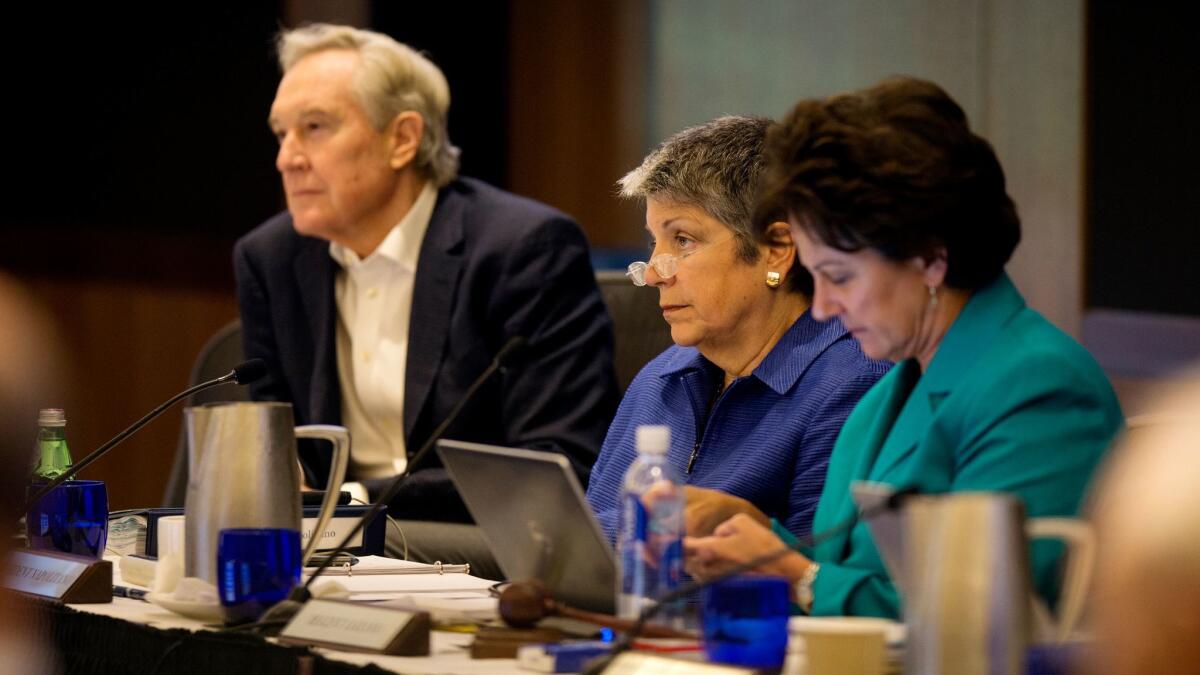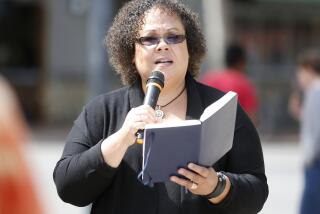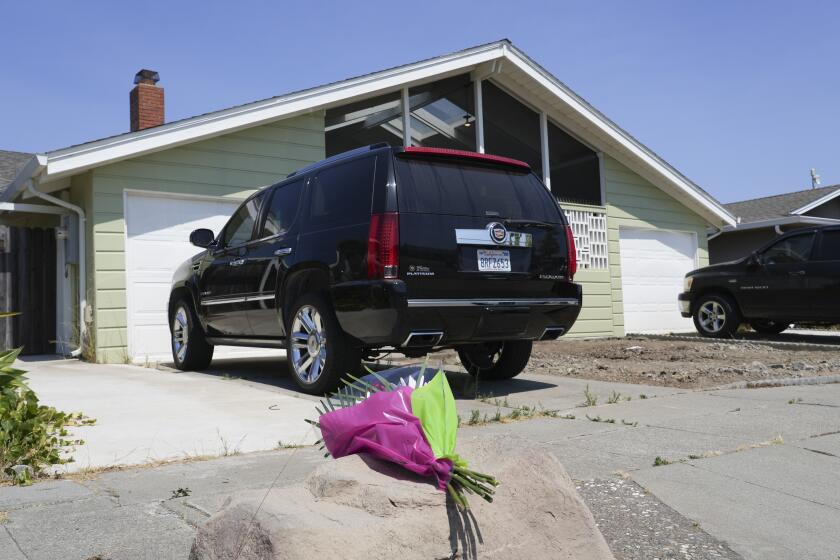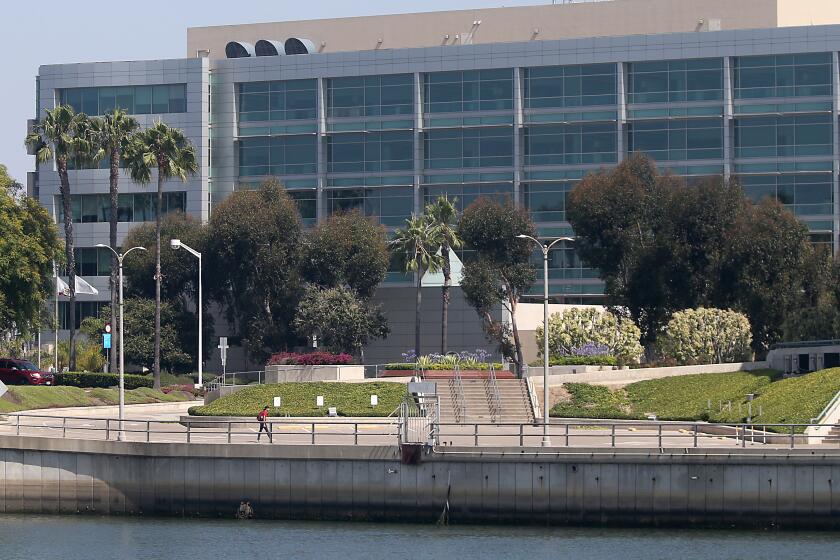Average cost of attending a UC campus rose about 4% last year, regents told

Amid rising public concern about college expenses, University of California regents were told Wednesday that the cost of attending UC campuses increased by about $1,100, or 4% last year.
The public university system’s new cost survey found that food, housing and healthcare costs rose, but transportation and book expenses dropped. The survey, conducted last spring at every campus, will be used to set budgets for 2017-18.
UC Berkeley recorded the biggest average cost increase, rising 7% to $34,217 annually. UC Santa Cruz — at $34,627 — was the most expensive campus. UC Riverside — at $30,802 — was the cheapest.
Regent Eloy Ortiz Oakley called on regents to look for ways to lower the cost of attendance during a committee session on the first day of a two-day meeting in San Francisco. Regent John A. Pérez said the university’s requirement that all students, regardless of income level, contribute about $10,000 annually to cover their costs might discourage some students from applying to UC.
“The sticker shock of $10,000 is very real,” he said.
Zenzile Riddick, a UC Santa Barbara sophomore, told regents that without an outside scholarship to cover that “self help” portion, “I can say with certainty that I would not be able to attend the University of California.”
In an interview, Riddick said that her unemployed mother cried when she learned about the $10,000 contribution requirement.
“The first thing we said when we saw that was, ‘I’m not going there,’” Riddick said. She ultimately received an Oakland community scholarship to cover the amount.
Board Chairwoman Monica Lozano said she was forming a group to review the university’s education finance model, while Regent Sherry Lansing urged her colleagues to advocate for the debt-free college plan unveiled this week by Assembly Democrats. The plan could provide $1.6 billion over five years to help students close the gap between their financial aid, expected family contributions and remaining college costs.
Regents also grappled with other challenges, including plans to ease the housing crunch at UC Berkeley and UCLA. Berkeley is only able to guarantee housing for one year and provides beds for just 22% of undergraduates and 9% of graduates — the lowest in the system. The campus, which is facing a $110-million budget deficit, has yet to decide how to pay for any planned expansion.
The regents’ academic and student affairs committee approved changes to rules on handling faculty sexual misconduct cases — eliminating any time limits to file complaints, for instance. Regents agreed to review student requests, made earlier in the day, to give those filing complaints a greater voice in the process.
Some business was less serious. Many of the regents smiled when UC Davis asked the finance and capital strategies committee to approve a request to begin selling up to 20,000 gallons of wine produced by its renowned Department of Viticulture and Enology.
The university’s winery bills itself as the most sustainable and technologically advanced in the world — yet under state law, it was forced to pour 95% of its wine down the drain. A new law that took effect in January specifically allows the campus to form a nonprofit to sell the wine, which could bring in an estimated $50,000 a year to support further research and teaching, according to UC Davis officials.
As regents joked about wine tastings and talked about brand names and $100 bottles, UC Davis officials reminded them that Californians will not likely see Aggie Cabernet on store shelves. Most of the wine will be sold in bulk to other wineries.
“The main mission is to legally sell the wine and regain some of the costs … as part of the teaching program,” said Chik Brenneman, the university’s winemaker.
The request got a unanimous thumbs up.
To read the article in Spanish, click here
More to Read
Start your day right
Sign up for Essential California for news, features and recommendations from the L.A. Times and beyond in your inbox six days a week.
You may occasionally receive promotional content from the Los Angeles Times.







